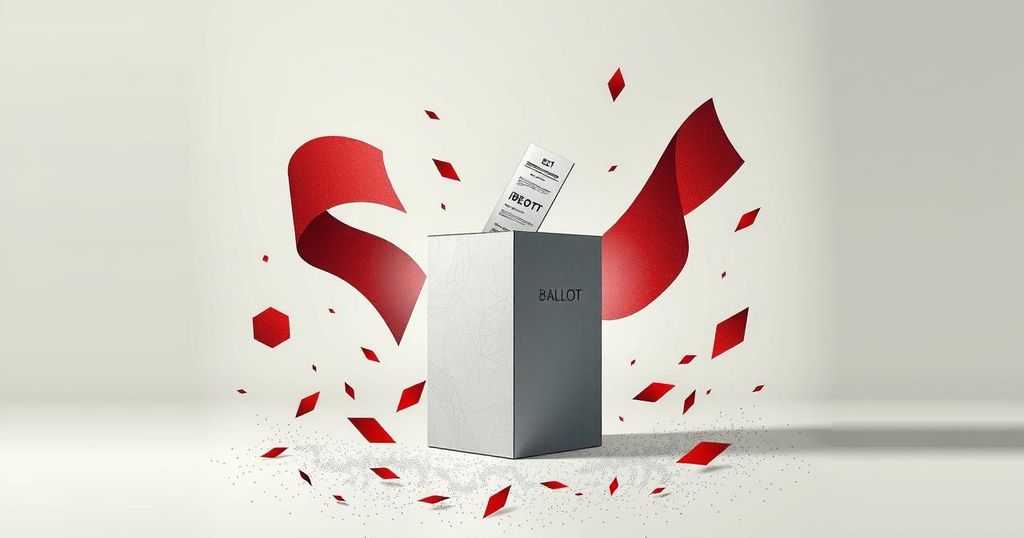Ecuador President Daniel Noboa narrowly leads against leftist challenger Luisa Gonzalez in the first round of voting, resulting in a runoff election set for April. Noboa received 44.3%, while Gonzalez earned 43.9%. The election highlights significant public demand for change amid rising violence and economic challenges in Ecuador.
Ecuadorian President Daniel Noboa has narrowly claimed victory in the first round of voting, securing 44.3% against leftist challenger Luisa Gonzalez, who garnered 43.9%. With 93% of the ballots counted, Noboa’s win leads to an impending runoff election scheduled for April. Despite pre-election predictions favoring Noboa’s position, Gonzalez’s strong performance indicates a significant desire among voters for change in leadership.
In an assertion of his triumph, Noboa, the 37-year-old heir to a banana export fortune, stated, “We won the first round over all the parties of old Ecuador.” Gonzalez, a 47-year-old lawyer and single mother, responded by framing her campaign as a David-versus-Goliath struggle, emphasizing the urgent need for reform and human rights respect in the ongoing battle against drug cartels. Indigenous leader Leonidas Iza trailed behind, obtaining just 5.3% of the votes.
Gonzalez aims to become Ecuador’s first elected female president and received a propelling endorsement from Claudia Sheinbaum, Mexico’s first female president. Sheinbaum expressed hope for improved diplomatic relations between Mexico and Ecuador, which have strained under Noboa’s administration. The election is seen as a reflection on Noboa’s hardline policies against escalating violence and a stagnant economy due to cartel activities.
Noboa, who has acknowledged the significant challenges Ecuador faces, employed extraordinary measures, including declaring a state of emergency and utilizing military force in an effort to counter drug cartel violence. However, human rights organizations have criticized the government’s aggressive approach, citing serious abuses.
Both candidates faced heightened security during the election process, a precaution following the assassination of a candidate in 2023. Fortunately, the election proceeded smoothly without incidents. Noboa cautioned voters against a Gonzalez presidency, warning of a regression to the policies of former President Rafael Correa, her mentor, currently in exile. Correa expressed confidence in Gonzalez’s chances to win the runoff.
Amid the turmoil, Ecuador’s economy continues to struggle, prompting Noboa to seek financial assistance from the International Monetary Fund, leading to a fiscal strategy of $4 billion. González has signaled her acceptance of IMF support, provided it does not negatively impact working families. Ecuador also anticipates a significant return of migrants, which poses additional economic challenges as remittance inflows are likely to decline.
In conclusion, the election reflects deep divisions in Ecuadorian society regarding the country’s direction, characterized by rising violence and economic struggles. Noboa seeks to continue his tough approach against crime, while Gonzalez highlights the need for reform and adherence to human rights. The upcoming runoff will determine the future leadership of Ecuador in an increasingly precarious context.
The recent election results in Ecuador signal a critical juncture for the nation’s future leadership. President Daniel Noboa narrowly leads against leftist rival Luisa Gonzalez, who emphasizes the need for change and human rights reforms. The impending runoff will address the stark choices facing Ecuador amidst escalating violence and economic difficulties.
Original Source: www.bryantimes.com






